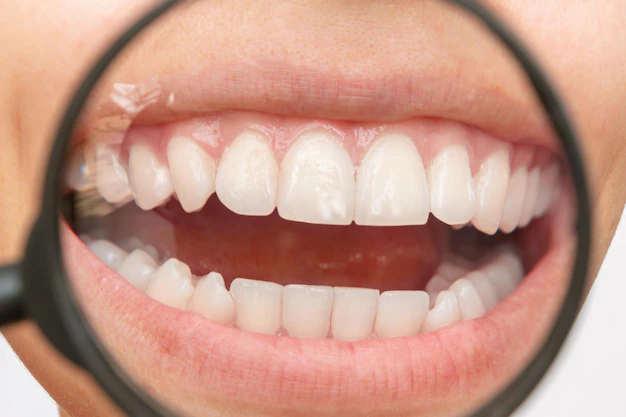Finding the perfect dental clinic is crucial for maintaining optimal oral health. A good clinic will provide exceptional care, cater to your needs, and prioritize your comfort. But with so many options available, how do you know where to begin? The first step is thorough research!
Online Resources for Finding Dentists
The internet provides a wealth of information at our fingertips. Here are some key resources to get you started in your search for a dentist:
- Review Websites: Popular platforms like Yelp and Zocdoc allow patients to leave reviews detailing their experiences with dentists. These reviews can offer valuable insights into patient satisfaction, wait times, and clinic atmosphere.
- Dental Association Websites: Both the American Dental Association (ADA) and your state’s dental association website often provide directories of licensed dentists in your area. These listings may include information about a dentist’s education, experience, and areas of focus.
- Insurance Provider Directories: Many insurance companies maintain online directories of dentists who participate in their networks. This can be a helpful way to find in-network providers and potentially save on costs.
Evaluating Online Reviews: Spotting the Good from the Bad
Online reviews can be a goldmine of information, but not all reviews are created equal. Here are some tips to help you distinguish credible reviews from potentially fabricated ones:
Identifying Credibility in Reviews:
- Look for detailed reviews: Vague statements like “Great dentist!” or “Worst experience ever!” offer little insight. Seek reviews that mention specific details about the dentist’s bedside manner, the clinic’s environment, or the quality of care provided.
- Review the reviewer’s history: Does the reviewer have a history of leaving multiple, generic reviews across different platforms? This could be a sign of inauthenticity.
- Consider the review’s tone: While some negative experiences are genuine, excessively harsh or complimentary reviews might be outliers.
Common Themes in Positive and Negative Reviews:
- Positive reviews often mention the dentist’s skill, friendliness, and the efficiency of the staff. They might also highlight the cleanliness of the clinic and positive interactions with the hygienist.
- Negative reviews may point out long wait times, difficulty scheduling appointments, or a lack of communication from the dentist. They could also mention concerns about the office environment or billing practices.
By keeping these tips in mind, you can leverage online reviews to gain valuable insights into potential dental clinics. Remember, reviews are just one piece of the puzzle.
Understanding Dentist Credentials & Qualifications
Picking a dentist isn’t just about finding someone with a friendly demeanor. It’s crucial to choose a professional with the education, experience, and qualifications to provide top-notch dental care. Here’s why a dentist’s credentials matter:
1. Importance of Dentist’s Education & Experience:
- Education: Look for a dentist who graduated from an accredited dental school and holds a Doctor of Dental Surgery (DDS) or Doctor of Medicine in Dentistry (DMD) degree.
- Experience: While new dentists can be competent, experience brings valuable knowledge and expertise. Consider a dentist with a good track record of practicing dentistry for several years.
- Verifying Board Certification & Licensure:
- Board Certification: In the US, dentists can obtain board certification from the American Board of Dentistry (ABD) or its specialty boards. Board certification demonstrates a dentist’s advanced knowledge and skills in a specific area.
- Licensure: Every dentist must be licensed to practice in your state. You can verify a dentist’s license through your state’s dental board website.
- Looking for Continuing Education and Specialization:
- Continuing Education: Dentistry is constantly evolving, and reputable dentists stay up-to-date on the latest advancements through continuing education courses.
- Specialization: Some dentists pursue advanced training to specialize in specific areas like orthodontics, periodontics, or oral surgery. If you have specific dental needs, consider finding a dentist with relevant specialization.
By researching a dentist’s credentials, you can gain confidence in their ability to provide you with the best possible care.
Considering Your Needs & Preferences: Finding the Perfect Fit
The ideal dental clinic caters to your individual needs and prioritizes your comfort. This will guide you through identifying your dental needs, matching those needs to the services offered by clinics, and prioritizing your personal preferences.
1. Identifying Your Dental Needs
The first step is to take stock of your current oral health situation. Here are some questions to consider:
- Do you require routine checkups and cleanings?
- Are you in need of specific procedures, such as fillings, crowns, or implants?
- Do you experience dental anxiety and require a dentist who specializes in patient comfort?
By understanding your needs, you can narrow down your search for clinics that offer the services you require.
2. Matching Your Needs to Clinic Services Offered
Not all dental clinics are created equal. Here’s how to ensure the clinic you choose aligns with your needs:
- General vs. Specialized Dentistry Practices: General dentists provide a wide range of routine and preventive care services. If you require specialized care, such as orthodontics or root canals, you may need to find a specialist.
- Family Dentistry vs. Adult-Focused Practices: Family dental practices cater to patients of all ages, while adult-focused practices may have a more specialized environment and approach. Consider your family’s needs when making this choice.
- Technology & Equipment Offered by the Clinic: Modern dental clinics often utilize advanced technology for diagnostics, treatment procedures, and patient comfort. Research the technology available at different clinics to see if it aligns with your preferences.
3. Prioritizing Your Comfort & Preferences
Your dental experience should be positive and comfortable. Here are some factors to consider beyond the purely clinical aspects:
- Clinic Location & Accessibility: Choose a clinic conveniently located for you, considering factors like commute time and parking availability.
- Office Environment & Atmosphere: Look for a clean, modern, and welcoming environment that puts you at ease.
- Payment Options & Insurance Coverage: Inquire about the clinic’s payment options and whether they accept your dental insurance.
By prioritizing your needs and preferences, you can find a dental clinic that feels like the perfect fit.
Making the Initial Contact: Scheduling Your First Consultation
Once you’ve identified a few promising dental clinics, it’s time to make the initial contact. This section will guide you through scheduling a consultation appointment and preparing for your first visit.
1. Scheduling a Consultation Appointment
There are two main ways to schedule a consultation appointment:
- Phone Call: Calling the clinic directly allows you to speak with a receptionist and ask any questions you may have before scheduling.
- Online Forms: Many dental clinics offer online appointment scheduling forms on their websites. This can be a convenient way to schedule an appointment at your own pace.
Questions to Ask During Scheduling:
- Do you accept new patients?
- What is your availability for consultation appointments?
- Do you accept my dental insurance? (If applicable)
- What is the estimated cost of a consultation appointment?
2. Preparing for Your First Consultation
Your first consultation is an opportunity to get to know the dentist and the clinic environment. Here’s how to prepare:
- Medical & Dental History Documentation: Gather any relevant medical and dental history documents, such as X-rays or a list of current medications.
- Dental Insurance Information: Bring your dental insurance card and any necessary information about your plan.
- Questions to Ask the Dentist: Prepare a list of questions you want to ask the Berwyn dentist about your oral health, treatment options, and the clinic’s policies.
By being prepared and asking insightful questions, you can make the most of your first consultation and gain valuable insights into the dental clinic.
Assessing Your Experience at the Clinic: Making an Informed Decision
Your first consultation appointment is a crucial step in choosing the right dental clinic. This will guide you through evaluating the clinic environment, your interaction with the dentist and hygienist, and your overall comfort level during the visit.
1. Evaluating the Clinic Environment
- Cleanliness & Hygiene Protocols: Observe the overall cleanliness of the waiting area, treatment rooms, and equipment. A spotless environment is essential for infection control.
- Friendliness & Professionalism of Staff: Notice how the staff interacts with patients. Are they courteous, welcoming, and professional?
2. Interaction with the Dentist and Hygienist
- Communication Style & Bedside Manner: Does the dentist explain procedures clearly and answer your questions patiently? Is the hygienist gentle and attentive during your cleaning?
- Explanation of Procedures & Treatment Options: The dentist should discuss your dental needs and present various treatment options in a way you can understand.
3. Overall Feel & Comfort Level During the Appointment
- Were you treated with respect and listened to attentively?
- Did the dentist address your concerns and offer solutions that aligned with your needs?
- Did the appointment flow smoothly, and were wait times reasonable?
By paying attention to these details, you can gain valuable insight into the quality of care provided by the clinic.
Making Your Decision and Building a Long-Term Relationship
Choosing the right dental clinic is an investment in your oral health. This section will guide you through evaluating your experience, discussing ongoing care with the dentist, and the benefits of establishing a long-term dental care relationship.
1. Evaluating Your Overall Experience
After your consultation, take some time to reflect on your experience. Consider the following:
- Did the clinic meet your expectations and align with your needs?
- Do you feel comfortable and confident with the dentist’s knowledge and skillset?
- Was the staff friendly, professional, and attentive to your concerns?
2. Discussing Ongoing Care & Treatment Plans
If you decide to move forward with the clinic, discuss your ongoing care plan with the dentist. This may include:
- Frequency of checkups and cleanings
- Follow-up appointments for any necessary procedures
- Estimated costs of treatment and potential insurance coverage
3. Benefits of Establishing a Long-Term Dental Care Relationship
Building a long-term relationship with a dentist offers several advantages:
- The dentist becomes familiar with your unique oral health history and needs.
- Preventive care can be tailored to address any potential problems early on.
- Continuity of care can lead to better treatment outcomes and improved oral health.
- Regular visits can help build trust and reduce dental anxiety.
By following these steps and prioritizing your oral health, you can find the perfect dental clinic in Berwyn and establish a long-term relationship with a dentist you trust.
A Smile for Life
Finding the right dental clinic is an essential step toward achieving and maintaining optimal oral health. Remember, a healthy smile is not just about aesthetics; it plays a vital role in your overall well-being. By following the key points outlined in this guide, you can embark on a confident journey to discover a dental clinic that prioritizes your needs and delivers exceptional care. Don’t hesitate to schedule consultations at a dental clinic in Berwyn to find the perfect fit. Invest in your smile, and take charge of your oral health today!
Frequently Asked Questions
What if I have dental anxiety?
Many people experience dental anxiety. Look for clinics that advertise techniques for patient comfort, such as sedation dentistry or nitrous oxide (“laughing gas”). During your consultation, discuss your anxiety with the dentist and inquire about their approach to managing anxious patients.
Do I need to see a dentist if my teeth don’t hurt?
Regular dental checkups and cleanings are crucial for maintaining good oral health, even if you’re not experiencing any pain. These visits allow dentists to detect potential problems early on when they are often easier and less expensive to treat.
What if I don’t have dental insurance?
Many dental clinics offer financing options for procedures. Inquire about their payment plans and discuss your budget with the dentist. Some clinics also offer discounts for new patients or self-pay options.










